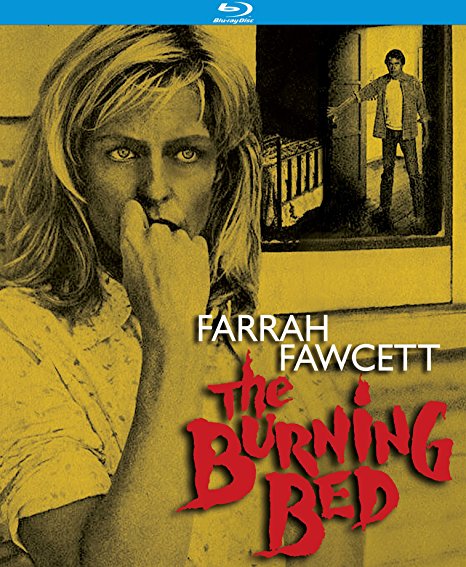Plot: Francine (Farrah Fawcett) was a small town girl, mostly naive about the ways of the love when she fell for Mickey (Paul LeMat). He was the first man she was intimate with and his seemingly fiery passion for her made her feel special, so soon enough, the two would be married. But that same passion she once appreciated takes a darker turn once the two are husband and wife. He might have liked to see her all dolled up before, but now if she tries to look nice, he flies off the handle and demands that she change. This jealous, possessive behavior only escalates with time, but those close to her urge her to stick it out and insist Mickey doesn’t mean the things he does. As the couple has children, things don’t get better and in truth, the situation only becomes more dire. As she suffers almost constant abuse and Mickey tries to control her every move, can Francine ever make a true break and save herself and her children?
Entertainment Value: This made for television movie presents a dark, unflinching look at domestic violence and the intense toll it can take. The movie doesn’t shrink away from the uncomfortable subject matter, putting us right in the middle of a dysfunctional, abusive relationship. The entire relationship is explored as well, so we aren’t just dropped in when things get bad, but we are present from the courtship phase all the way until the end credits. An approach is used that flashes between time periods, but it is never disorienting in the least and while we do move around, no details are skipped over in the process. This is tough stuff to watch, but the melodrama is dialed down and the tone is always serious, so this is a thoughtful exploration and never comes across as exploitation. While I appreciate the wild melodrama that similar productions have used to portray this kind of situation, The Burning Bed’s more grounded approach is quite effective and a welcome change of pace.
The lead here is Farrah Fawcett and she carries the entire movie on her shoulders, taking us on this journey of suffering and abuse. If you’re familiar with the psychology behind abuse and how some victims respond, you’ll appreciate how realistic the approach taken is and how authentic Fawcett’s performance feels. You can see the intense love she has for her children and even her abusive husband, but also the deep pain and desperate need to escape. As the movie rolls on, her performance is able to convey the mental toll the abuse has taken and how her experiences have changed her on many levels, not an easy task to accomplish. The rest of the cast is solid as well, with supporting turns from Paul LeMat, Penelope Milford, Grace Zabriskie, and Richard Masur, but Fawcett really runs the show here. I know some dismiss made for television movies as lesser pieces of cinema, but The Burning Bed proves that assumption wrong, as it is a powerful and well crafted look at an important, still relevant narrative.
Use this Amazon link to purchase The Burning Bed (or anything else) and help support my site!

